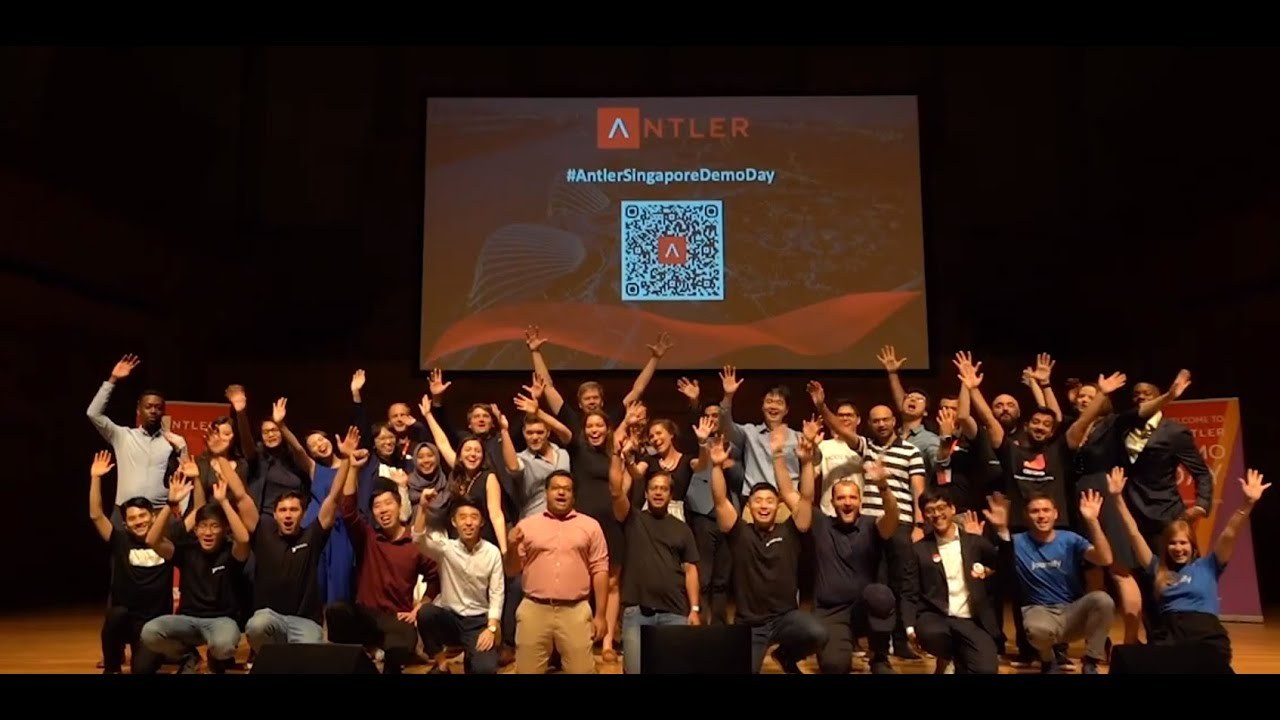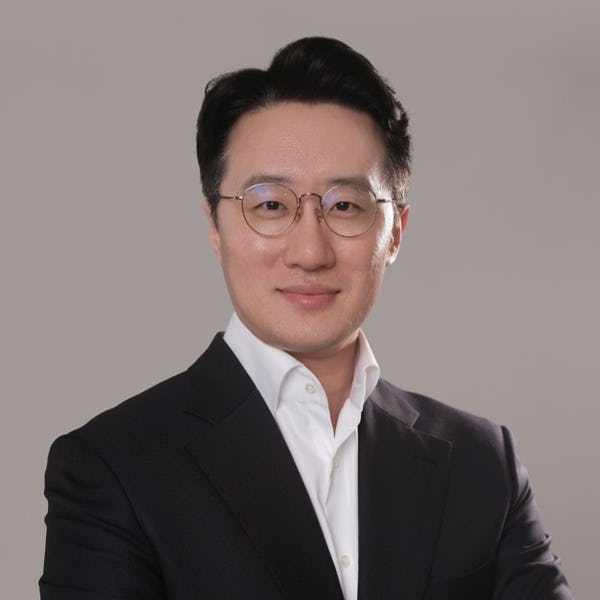[Herald Interview] ‘Startup ecosystem in Korea entering next level’
Once skeptical of Seoul as startup incubator, Singaporean VC Antler now operates W30b funding for over 100 local startups
By Jung Min-kyungPublished : April 25, 2022 - 15:33

What distinguishes Antler from most startup accelerators is that it is interested in funding startups at a very early, pre-seed stage. It works as a matchmaker for teams, helps them receive funds, then pushes them out into society as a full-fledged business -– all in six months.
And it intends to do exactly so in South Korea, where startups’ humble beginnings remain reliant on the generosity of families and friends.
“Once an innovator decides to launch his or her own business, they face too many obstacles in finding partners, choosing an item, getting verified and attracting investments,” Antler Korea co-managing partner Gabriel Jung told The Korea Herald last week.
“Our job is to remove some of those hurdles for startups,” he added.
Korea is the 15th market for Antler, launched in Singapore in 2017. Antler has since helped produce some 400 startups across 17 different cities across the globe. Five years ago, Antler was skeptical about the Korean startup ecosystem. But today, fresh changes have grabbed the attention of the Singapore-based company, pushing it to establish an office in Seoul last year.
“Compared with five years earlier, there is now a solid ecosystem of accelerators and state-backed programs, venues to back startups. Startup founders now have a better understanding of the ecosystem and higher standard for their projects.”
But with the smoother runway came new problems, according to Jung.
“Conglomerates and big businesses continue to only work with the more verified startups –those who are qualified for Series A or B funding – or launch their own internal startups,” he explained.
“This creates a stalemate in the ecosystem because verified startups get less-than-expected investments from big businesses. And for those leading internal startups, they’re not as desperate – and the current system lacks the ability to give them full credit.”
Antler Korea not only plans to foster pre-seed startups through connecting teams and funding, but by accumulating the data of those businesses. It aims to create a solid portfolio for startups that opt for Series C funding, giving them a wider window of opportunity for better connections and partnerships.
And it intends to do exactly so in South Korea, where startups’ humble beginnings remain reliant on the generosity of families and friends.
“Once an innovator decides to launch his or her own business, they face too many obstacles in finding partners, choosing an item, getting verified and attracting investments,” Antler Korea co-managing partner Gabriel Jung told The Korea Herald last week.
“Our job is to remove some of those hurdles for startups,” he added.
Korea is the 15th market for Antler, launched in Singapore in 2017. Antler has since helped produce some 400 startups across 17 different cities across the globe. Five years ago, Antler was skeptical about the Korean startup ecosystem. But today, fresh changes have grabbed the attention of the Singapore-based company, pushing it to establish an office in Seoul last year.
“Compared with five years earlier, there is now a solid ecosystem of accelerators and state-backed programs, venues to back startups. Startup founders now have a better understanding of the ecosystem and higher standard for their projects.”
But with the smoother runway came new problems, according to Jung.
“Conglomerates and big businesses continue to only work with the more verified startups –those who are qualified for Series A or B funding – or launch their own internal startups,” he explained.
“This creates a stalemate in the ecosystem because verified startups get less-than-expected investments from big businesses. And for those leading internal startups, they’re not as desperate – and the current system lacks the ability to give them full credit.”
Antler Korea not only plans to foster pre-seed startups through connecting teams and funding, but by accumulating the data of those businesses. It aims to create a solid portfolio for startups that opt for Series C funding, giving them a wider window of opportunity for better connections and partnerships.

“We plan to become an eyewitness for those businesses,” Jung pledged.
The Korean office also plans to connect local startups with counterparts who have completed the Antler program in other countries.
“The startups’ data is exposed to our Antler headquarters and offices around the world, boosting the possibility of global partnerships for startups. Recently, we connected a cosmetics company in Kenya with a skincare manufacturer here.”
The six-month Antler program consists of two stages that involves some 100 potential startup founders. The first stage is the planning and personnel mix-up where each person receives around 3 million won ($2,400) to materialize some of their early ideas. Then the second stage involves bigger funding and actual materialization of the business itself. The program ends with a demo day where startups can pitch their businesses to potential investors. Antler takes 10 percent of the company’s stake upon its official launch.
Antler Korea is currently running a four-year, 30 billion won funding program for over 100 local startups. Some 10 percent of the fund is funneled by public institutions including the Gyeonggi Center for Creative Economy & Innovation, while the rest is privately funded. Last year, Antler headquarters raised $75 million after investments from the London-based Schroders and Norwegian asset management firm Ferd.
“We look for innovators with a balanced perspective on their businesses – those that think and act at the same time,” Jung said.
Jung was previously head of Corporate Venture Capital at GS Retail, the retail subsidiary of Korean conglomerate GS Group. He started his career as a consultant at Accenture Strategy before going on to establish WiseBros&Company, a B2B Software as a service company to help universities restructure. He has also worked at the Rakuten CEO Innovation Office, helping the Japanese company expand into global markets. Jung has also led Bravestone Venture Partners, where he made notable investments including seed investment in ImpriMed in the US.
(mkjung@heraldcorp.com)
The Korean office also plans to connect local startups with counterparts who have completed the Antler program in other countries.
“The startups’ data is exposed to our Antler headquarters and offices around the world, boosting the possibility of global partnerships for startups. Recently, we connected a cosmetics company in Kenya with a skincare manufacturer here.”
The six-month Antler program consists of two stages that involves some 100 potential startup founders. The first stage is the planning and personnel mix-up where each person receives around 3 million won ($2,400) to materialize some of their early ideas. Then the second stage involves bigger funding and actual materialization of the business itself. The program ends with a demo day where startups can pitch their businesses to potential investors. Antler takes 10 percent of the company’s stake upon its official launch.
Antler Korea is currently running a four-year, 30 billion won funding program for over 100 local startups. Some 10 percent of the fund is funneled by public institutions including the Gyeonggi Center for Creative Economy & Innovation, while the rest is privately funded. Last year, Antler headquarters raised $75 million after investments from the London-based Schroders and Norwegian asset management firm Ferd.
“We look for innovators with a balanced perspective on their businesses – those that think and act at the same time,” Jung said.
Jung was previously head of Corporate Venture Capital at GS Retail, the retail subsidiary of Korean conglomerate GS Group. He started his career as a consultant at Accenture Strategy before going on to establish WiseBros&Company, a B2B Software as a service company to help universities restructure. He has also worked at the Rakuten CEO Innovation Office, helping the Japanese company expand into global markets. Jung has also led Bravestone Venture Partners, where he made notable investments including seed investment in ImpriMed in the US.
(mkjung@heraldcorp.com)







![[KH Explains] How should Korea adjust its trade defenses against Chinese EVs?](http://res.heraldm.com/phpwas/restmb_idxmake.php?idx=644&simg=/content/image/2024/04/15/20240415050562_0.jpg&u=20240415144419)











![[Today’s K-pop] Stray Kids to return soon: report](http://res.heraldm.com/phpwas/restmb_idxmake.php?idx=642&simg=/content/image/2024/04/16/20240416050713_0.jpg&u=)